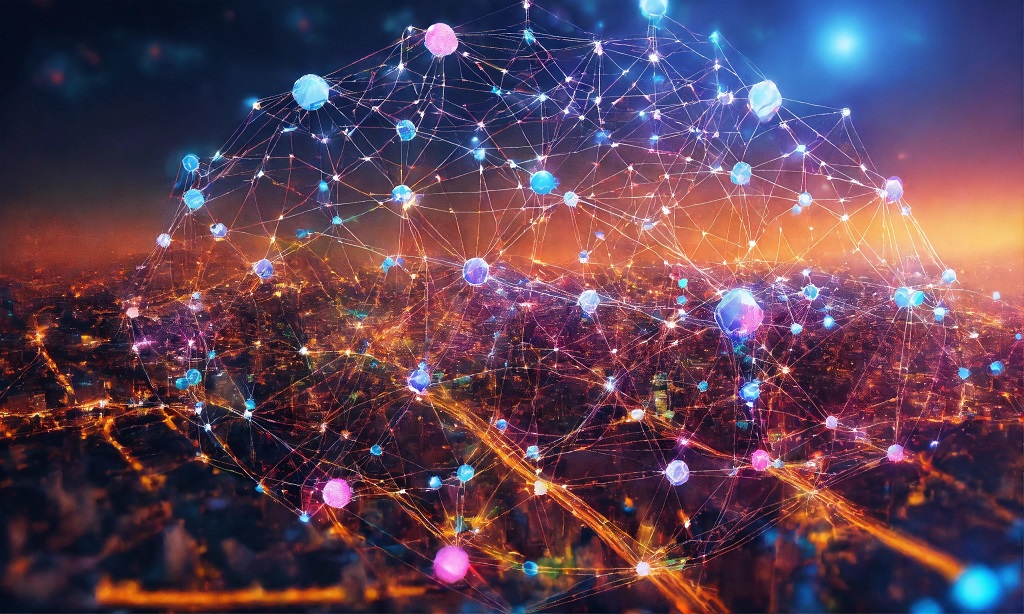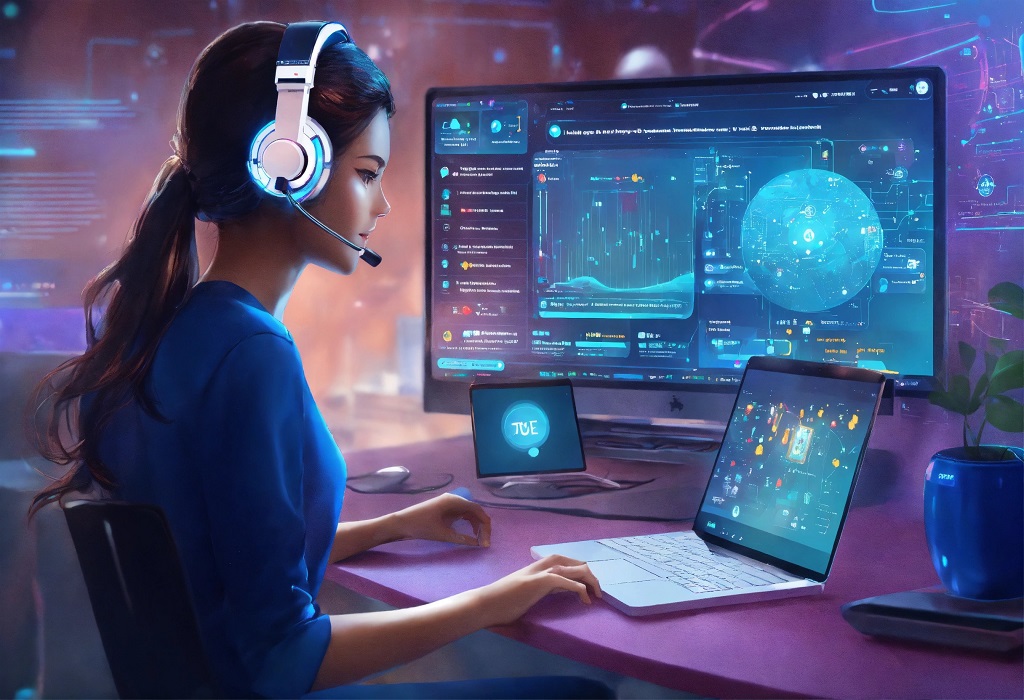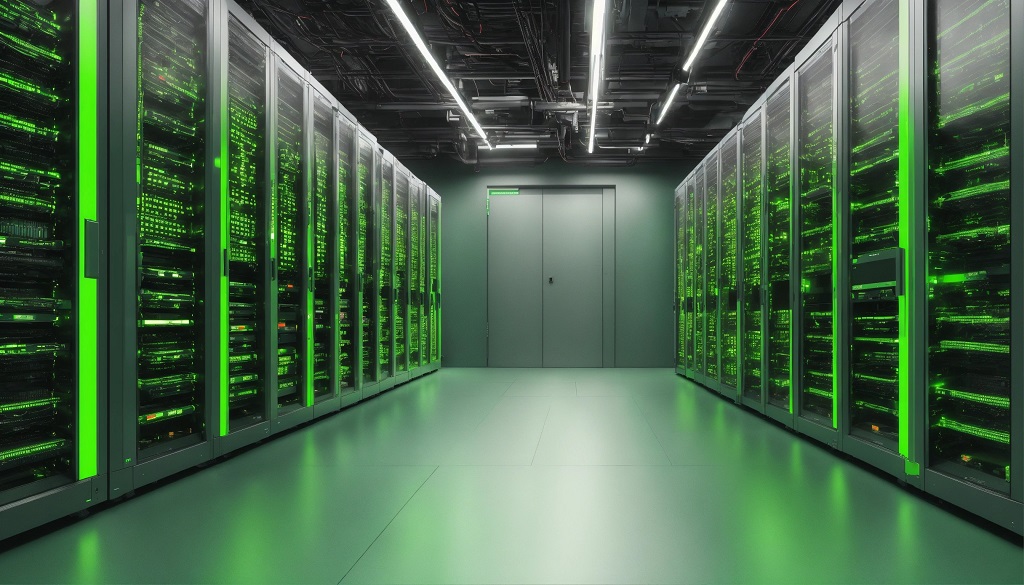- trending-title
- What Is Blockchain Technology and How Does It Work?
- 7011214217
The convergence of quantum computing and artificial intelligence (AI) marks a paradigm shift in the computational landscape, promising unprecedented capabilities and challenging the boundaries of what is achievable. Quantum computing leverages the principles of quantum mechanics to process information in ways that classical computers cannot, potentially revolutionizing the speed and complexity of AI algorithms. As we stand at the intersection of these cutting-edge technologies, the synergy between quantum computing and AI holds the potential to unlock new realms of computational power, enabling breakthroughs in machine learning, optimization, and problem-solving.
At the core of this intersection lies the promise of quantum supremacy—a point where quantum computers can perform tasks beyond the reach of classical computers. In the realm of AI, this translates to exponentially faster training of complex models, more efficient optimization processes, and the ability to tackle problems deemed computationally intractable until now. However, with this promise comes a myriad of challenges, including the need for new quantum algorithms, error correction mechanisms, and a deeper understanding of how to harness the quantum advantage effectively for AI applications.
As researchers and engineers delve into this uncharted territory, the fusion of quantum computing and AI opens a new chapter in the evolution of technology, inviting us to rethink the possibilities and limitations of artificial intelligence in the quantum era. The journey ahead holds the potential to reshape industries, solve previously insurmountable problems, and propel us into a future where the computational boundaries are defined not by the constraints of classical bits, but by the limitless possibilities of quantum bits, or qubits.
The intersection of quantum computing and generative models represents a frontier of innovation that holds promise for transforming how we generate and manipulate information. Generative models, such as Generative Adversarial Networks (GANs) and Variational Autoencoders (VAEs), are at the forefront of artificial intelligence, capable of creating realistic data and fostering creativity in machine learning applications.
Quantum computing, with its ability to process information in parallel and explore vast solution spaces efficiently, introduces a new dimension to the capabilities of generative models. Quantum generative models have the potential to outperform classical counterparts in terms of speed and complexity, offering a pathway to revolutionize the generation of synthetic data, image synthesis, and content creation.
One of the key advantages lies in the quantum parallelism, where quantum bits (qubits) can exist in multiple states simultaneously. This allows for the exploration of a multitude of possibilities simultaneously, significantly speeding up the training and inference processes of generative models. Quantum-enhanced sampling and optimization techniques further contribute to more effective training of generative models, leading to the creation of more realistic and diverse outputs.
However, the marriage of quantum computing and generative models is not without challenges. Quantum coherence, the delicate state that allows qubits to exist in superposition, is susceptible to noise and interference, posing significant hurdles for maintaining the fidelity of quantum-generated outputs. Researchers are actively exploring methods for error correction and devising quantum algorithms optimized for generative tasks.
In essence, the synergy between quantum computing and generative models represents a frontier where the boundaries of classical computing are pushed, opening new possibilities for creative AI applications. As advancements continue, we can anticipate a future where quantum-enhanced generative models redefine how we generate, simulate, and innovate in artificial intelligence and beyond.
The future of quantum computing and artificial intelligence (AI) holds the promise of transformative advancements, reshaping the landscape of computation and problem-solving. As these two cutting-edge technologies converge, several key trends and possibilities emerge:
Quantum Advantage in AI: Quantum computing is poised to offer a significant advantage in solving complex AI problems. Quantum algorithms, tailored for machine learning and optimization tasks, have the potential to outperform classical algorithms. Quantum-enhanced speed and parallelism could revolutionize tasks such as training large neural networks, optimizing complex systems, and processing vast datasets.
Quantum Machine Learning: Quantum machine learning (QML) is a burgeoning field that leverages quantum computing to enhance various aspects of machine learning. Quantum algorithms for data classification, clustering, and pattern recognition aim to provide exponential speedup compared to classical counterparts. QML has the potential to uncover insights from large datasets more efficiently, paving the way for advancements in AI applications.
Hybrid Quantum-Classical Systems: Given the current challenges in achieving fault-tolerant, error-free quantum computing, the future may see the emergence of hybrid quantum-classical systems. These systems leverage the strengths of both quantum and classical computing to address specific tasks, with quantum processors handling complex calculations and classical components managing error correction and optimization.
Quantum-Safe AI: As quantum computers advance, there is growing awareness of the potential threat they pose to current encryption methods. The future of AI involves developing quantum-safe cryptographic techniques to secure AI systems against the risk of quantum attacks. This is crucial for ensuring the privacy and security of sensitive data processed by AI algorithms.
Quantum Generative Models: Quantum computing may play a pivotal role in enhancing generative models. The ability of quantum computers to explore vast solution spaces simultaneously could lead to the creation of more realistic and diverse generative outputs. Quantum generative models may redefine creative processes, influencing fields such as content creation, design, and simulation.
AI for Quantum Research: AI is increasingly becoming a valuable tool for advancing quantum research. Machine learning algorithms can assist in optimizing quantum circuits, error correction, and solving complex quantum problems. This synergy between AI and quantum computing accelerates progress in both fields.
Interdisciplinary Collaboration: The future will likely see increased collaboration between quantum physicists, computer scientists, and AI researchers. Bridging the gap between quantum computing and AI requires expertise from multiple domains, fostering interdisciplinary research and development.
While the potential is immense, challenges such as quantum error correction, scalability, and the development of practical quantum hardware still need to be addressed. The future of quantum computing and AI depends on overcoming these challenges and unlocking the full potential of this revolutionary convergence. As advancements continue, we can anticipate a future where quantum computing and AI together redefine the boundaries of what is computationally possible.
In conclusion, the intersection of quantum computing and artificial intelligence heralds a future of unprecedented possibilities and paradigm-shifting advancements. As these two realms of technology converge, the synergies promise transformative breakthroughs that could reshape the landscape of computation, problem-solving, and creative innovation.
The promise of quantum advantage in AI, where quantum algorithms outperform classical counterparts, opens the door to solving complex problems at a pace and scale previously unimaginable. Quantum machine learning, hybrid quantum-classical systems, and quantum-safe AI are emerging as pivotal areas that will define the future trajectory of these technologies.
The marriage of quantum computing and AI is not just about faster calculations; it's about redefining the nature of computation itself. Quantum generative models hint at a future where creative processes and content creation are revolutionized, and interdisciplinary collaboration between quantum physicists and AI researchers becomes the norm.
However, challenges such as quantum error correction, scalability, and the practical realization of fault-tolerant quantum hardware must be addressed to fully unlock the potential of this convergence. The journey ahead involves navigating uncharted territory, where innovation and collaboration will be key drivers.
As quantum computing and AI propel each other forward, the future holds the promise of solving problems that were once deemed insurmountable, securing communication against quantum threats, and ushering in an era where computational boundaries are pushed to new horizons. The next chapter in the evolution of technology is unfolding, and it is marked by the quantum-powered intelligence that will redefine what is possible in the digital age.

The healthcare enterprise is undergoing a big transformation...
View Details
In the dynamic landscape of information technology, networking...
View Details
To comprehend the future, we must first grasp the present....
View Details

Cloud computing architecture serves as the blueprint for the...
View Details
In the dynamic landscape of cloud computing, the choice of...
View Details